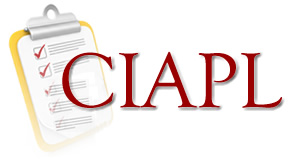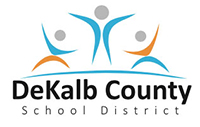
With the support of an active community and the input of DeKalb County Schools’ teachers, administrators, students and families, a new curriculum: Curriculum, Instruction, Assessment, and Professional Learning (CIAPL) is being implemented for the 2012—2013 school year.
The curriculum includes the Common Core Georgia Performance Standards in English Language Arts and Mathematics. In addition, new curriculum has been developed for all content areas in all grade levels including core and specials – Mathematics, English Language Arts, Science, Social Studies, World Languages, General-Choral Music, Instrumental Music, Visual Arts, Dance and Theatre, Health and Physical Education, and Career Technology.
CIAPL is the instructional framework which helps all students achieve at high levels!
clearly communicated to all stakeholders through “year-at-a-glance” curriculum maps
organized into units of study
aligned to Common Core Georgia Performance Standards (CCGPS)
a roadmap for what all learners need to know and be able to do as well as provides suggested model lessons that demonstrate how teachers can differentiate instruction
Screening – determining if there is a problem
Diagnostic – determining why a problem is occurring and what to do to make things better
Formative – determining whether what we are doing is working
Summative – demonstrating that what we have done has worked
Sustained – occurs on an ongoing, regular basis to support teachers with continually building and enhancing teaching skills.
Job-Embedded – provides “just-in-time” support and allows teachers to build their teaching skills as they engage in their daily work. Context matters. Teachers want to get smarter about their classroom, their students their content, and their instructional content and challenges.
Collaborative – allows teachers to work together to share best practices, reflect on challenges, and build new professional skills. Teachers do not need to be fixed; they need to be supported and continually developed. They already have a wealth of knowledge, beliefs and practices.
Data-Driven – uses classroom, school and district data to identify and target specific needs to support student learning.
Focused – emphasizes student instructional needs and helps teachers build strategies targeted to accelerate student achievement.
Common Core is a rigorous set of standards for the English Language Arts and Mathematics curriculum that has been developed based on the best practices of schools and organizations around the country and the world. The standards were created using the feedback of K-12 teachers, college-level educators and experts in the fields of civil rights, English-language learners and students with disabilities.
The standards are designed to do the following:
Prepare students for college and career readiness by aligning with college and work expectations.
Be clear, understandable and consistent. Each grade level will focus on key topics, with a coherent learning progression across each grade level.
Include rigorous content and application of knowledge through high-order thinking skills. The level of academic rigor is ambitious but achievable for students.
Build upon strengths and lessons of current state standards.
Use strategies from other top-performing countries so that all students are prepared to succeed in a global economy and society; and
Be evidence-based.
The standards are not a step-by-step guide for classroom instruction; rather, they are an outline of the goals to be reached and skills to be mastered at every grade level and upon graduation. The main focus of the Common Core is to increase academic rigor and prepare students for post-secondary career and college opportunities. The Common Core Standards define what a student should know and be able to do. It specifies “what” should be taught and learned, not “how” the content is taught.
The standards were designed to prepare students to succeed in today’s global marketplace and have an increased emphasis on critical thinking and 21st-century skills. The development of these skills begins in the early grades to allow teachers adequate time to teach the advanced material, and to give students adequate time to master it. The standards emphasize not just memorization, but conceptual understanding and progressive learning.
Parents should expect to see students engaged in building their analytical thinking skills and applying what they have learned rather than simply memorizing information. More 21st-century skills will be integrated, and the rigor or work will require additional student perseverance and cooperation. Literacy and mathematics skills that students learn in the first grade and subsequent grades have been aligned to what they will learn in upper grades, resulting in a coherent learning progression across each grade level.
All content areas are aligned with the Common Core Literacy Standards & Capacities of Literate Individuals



